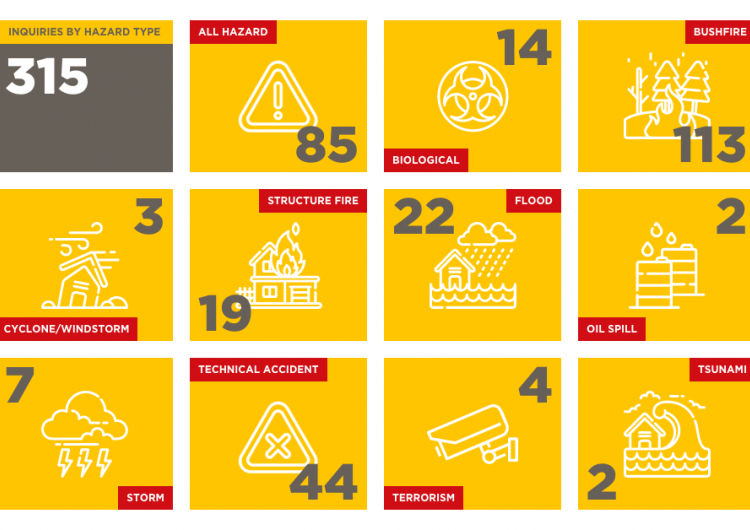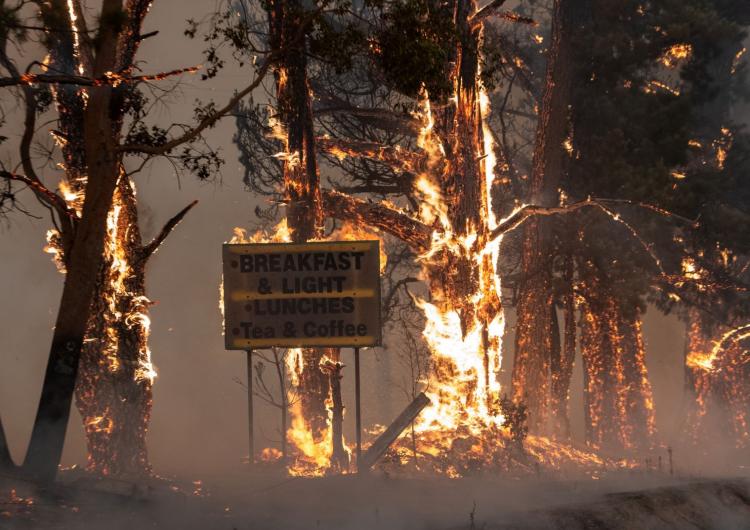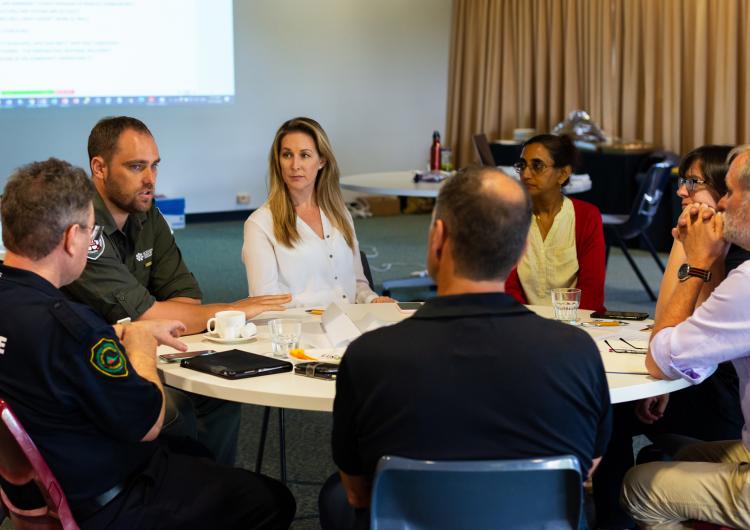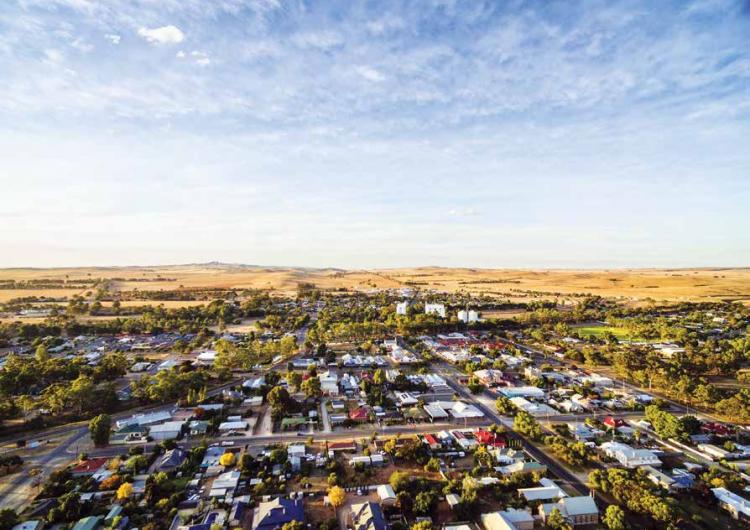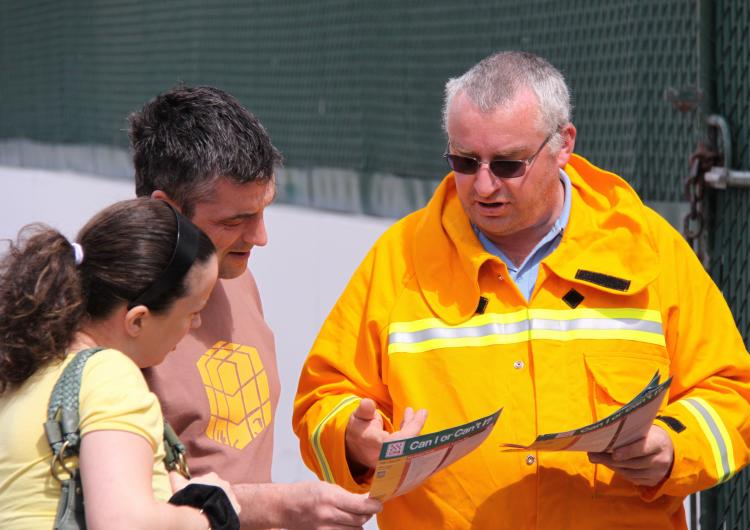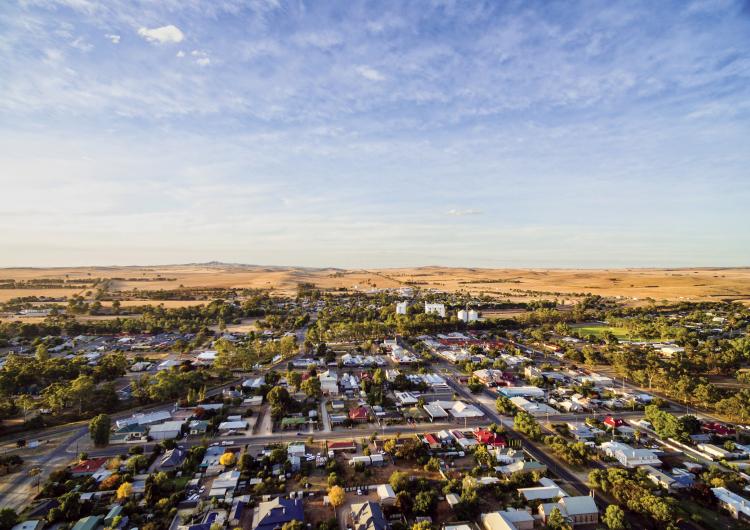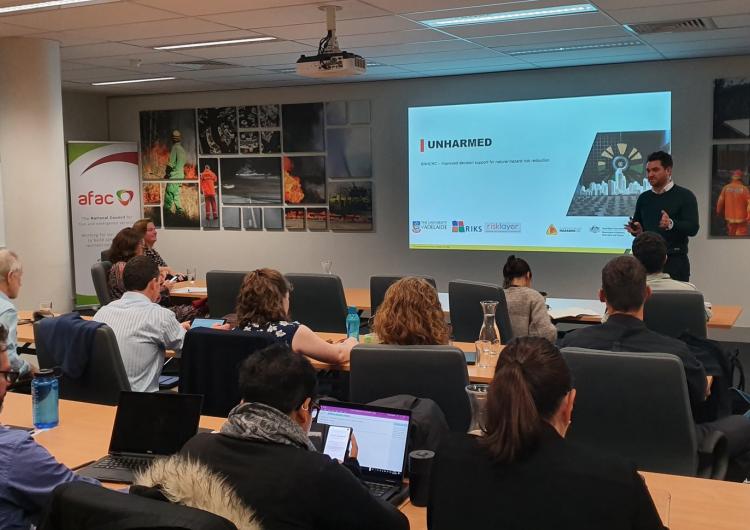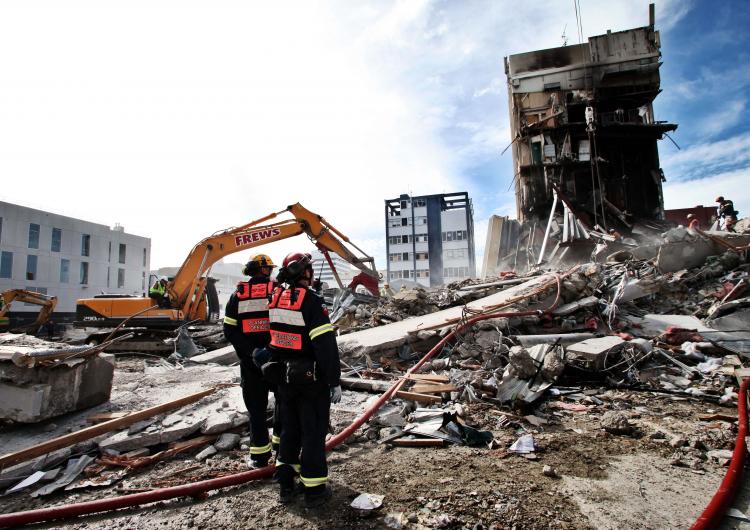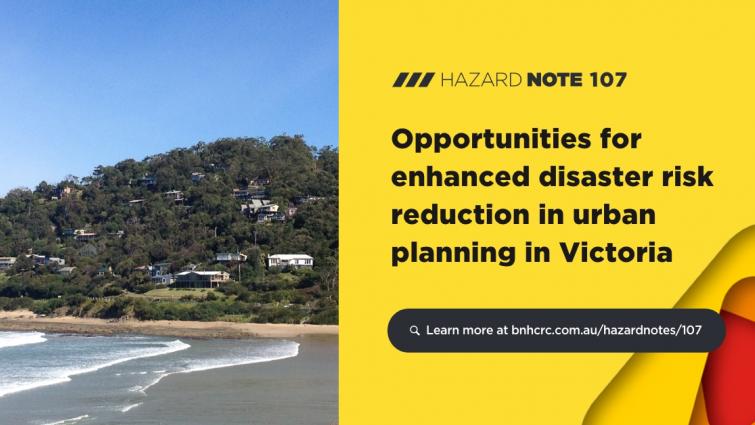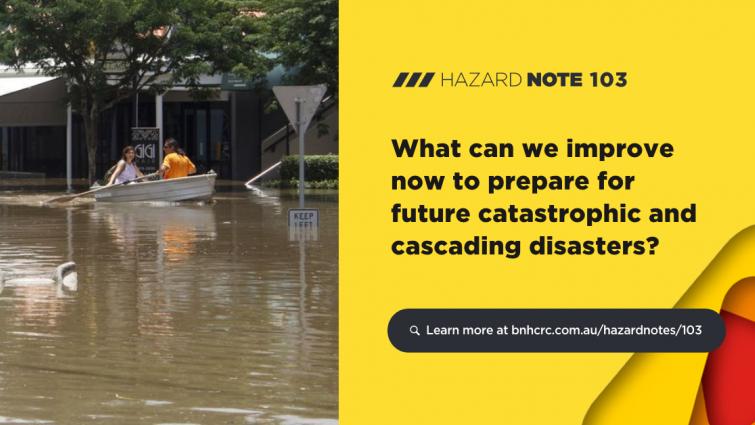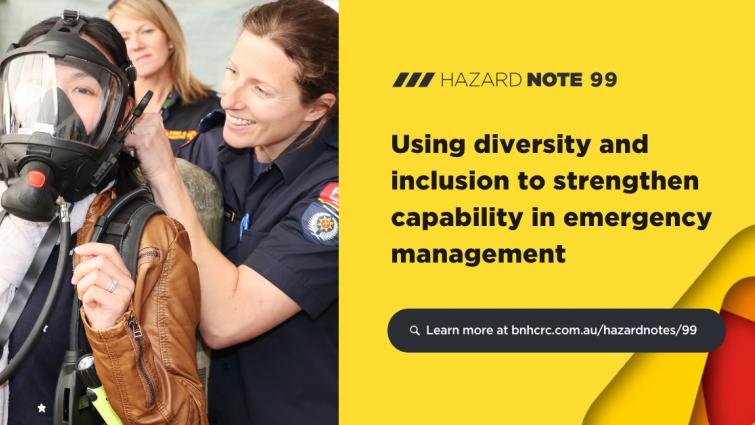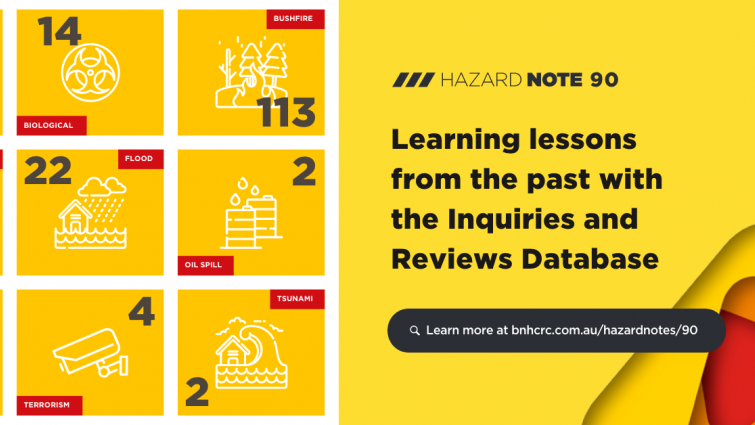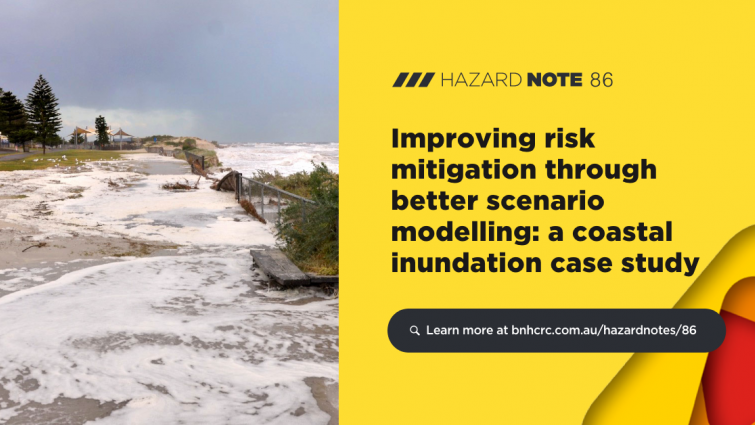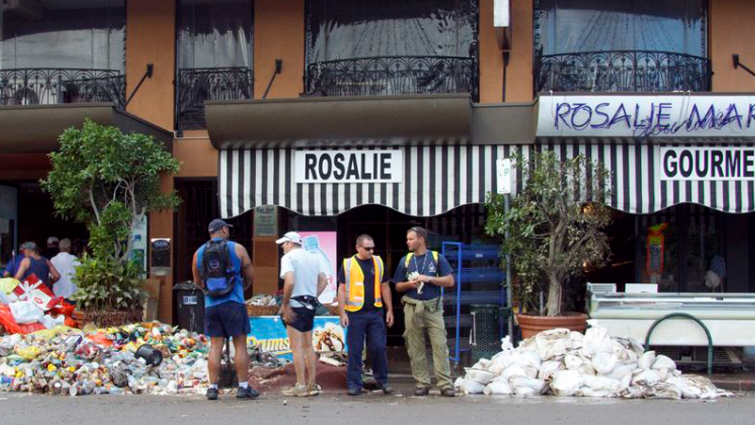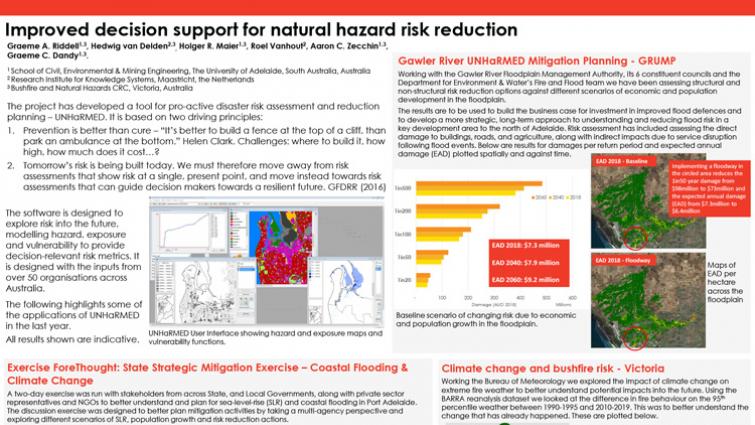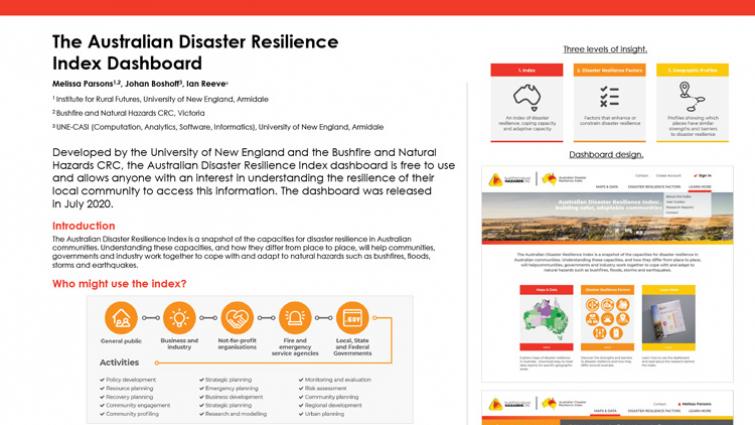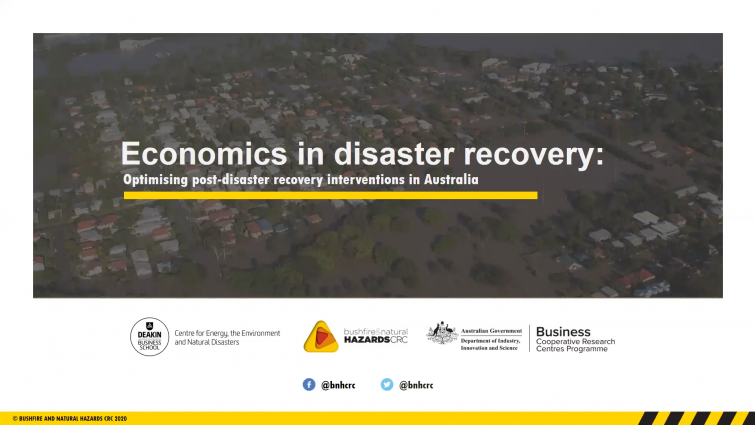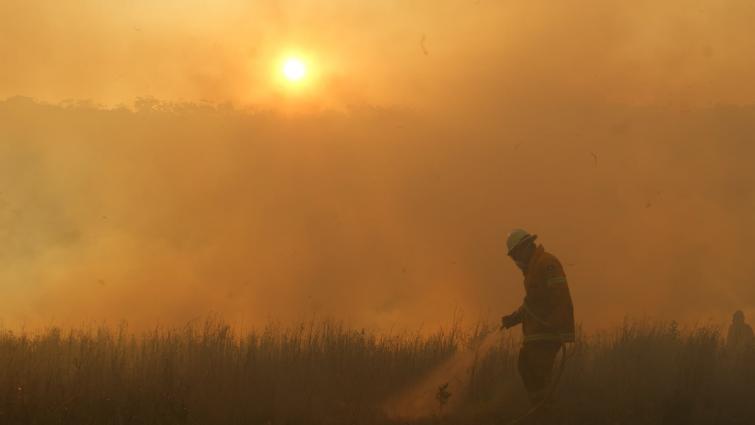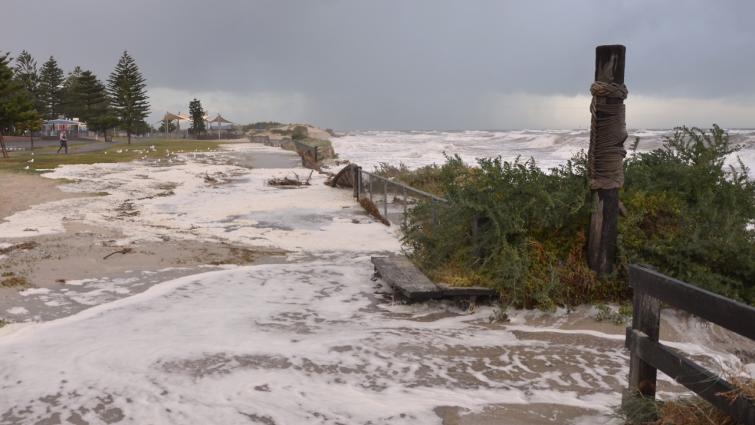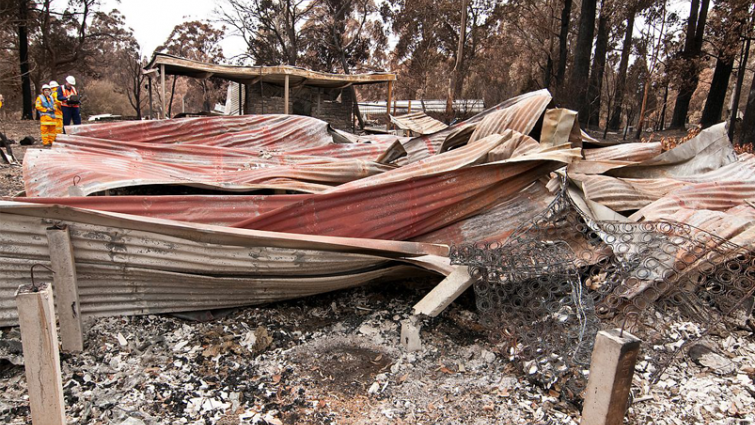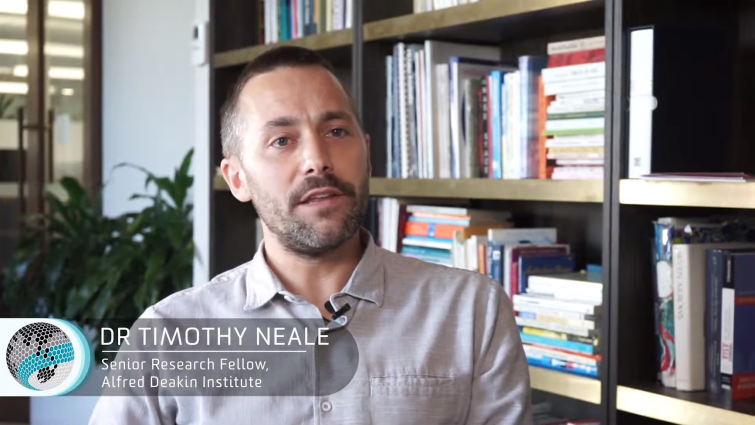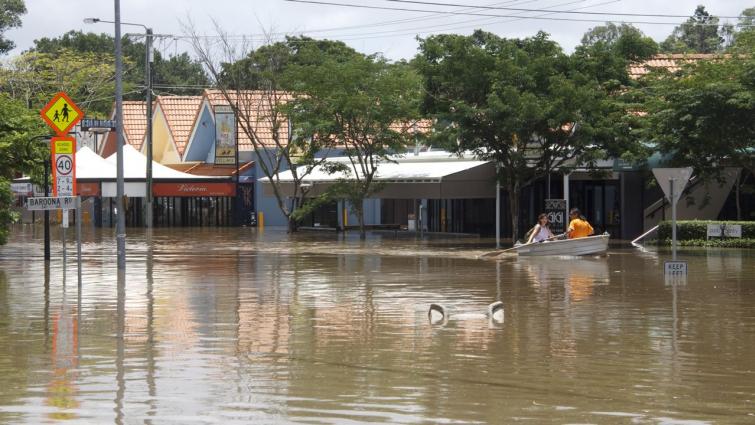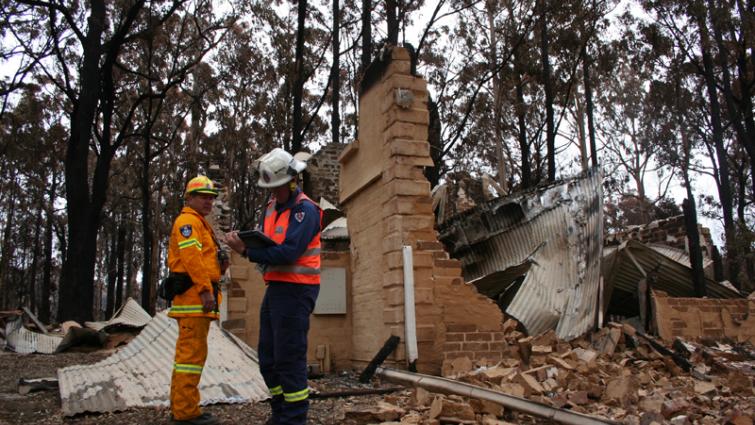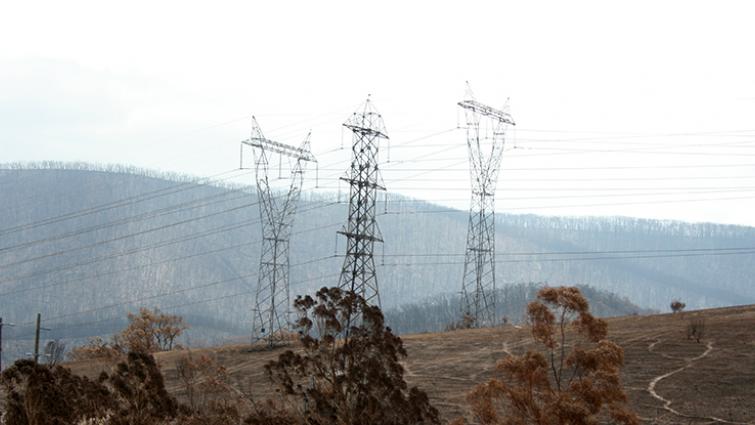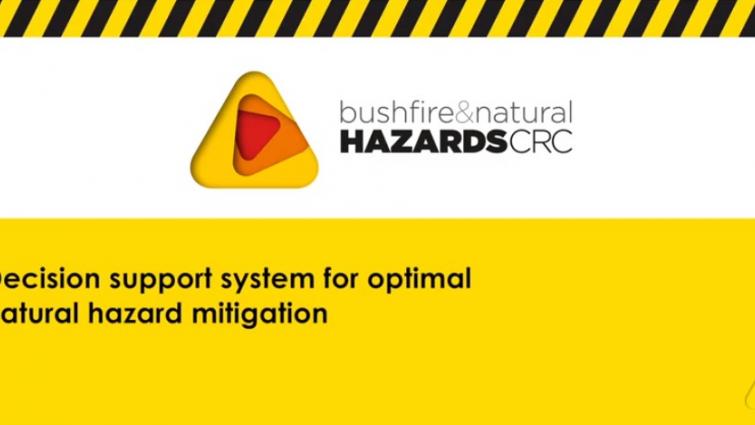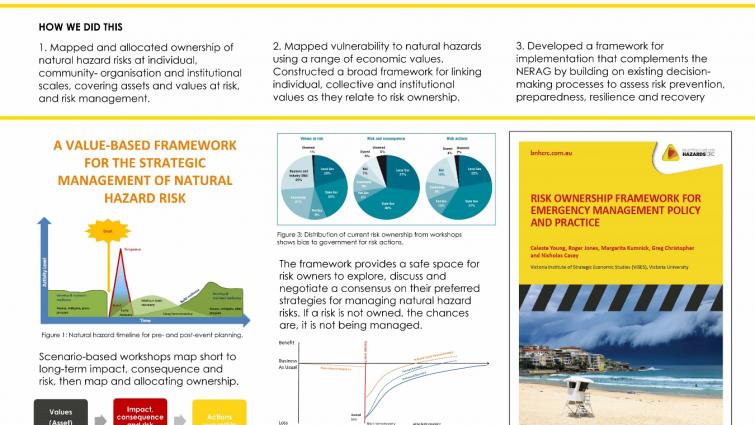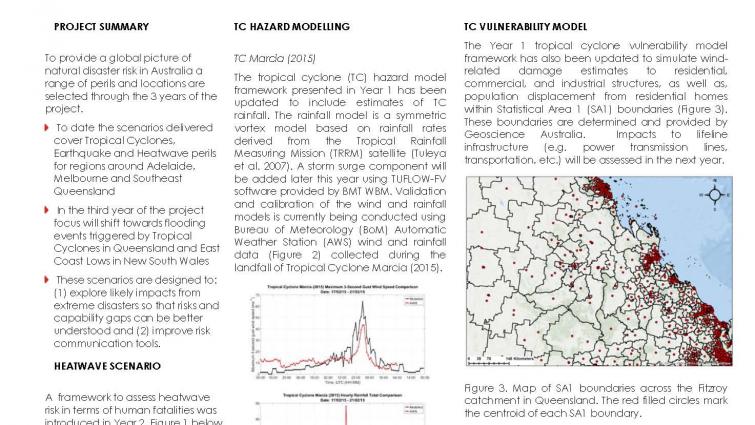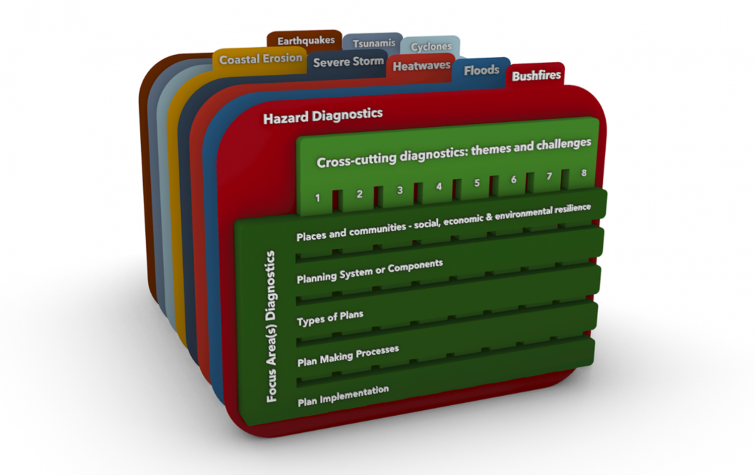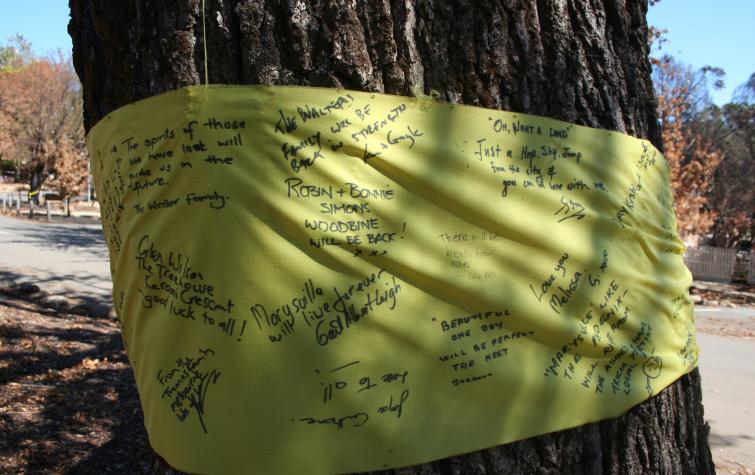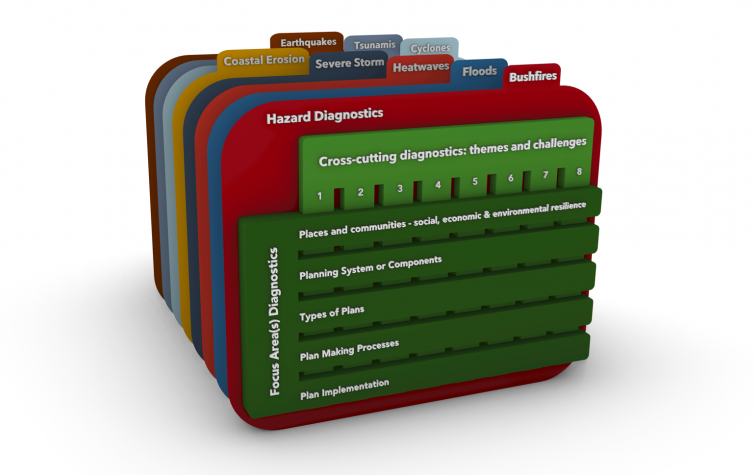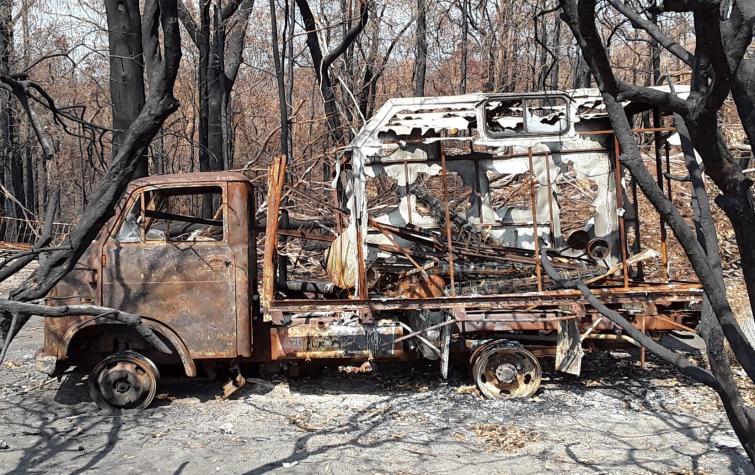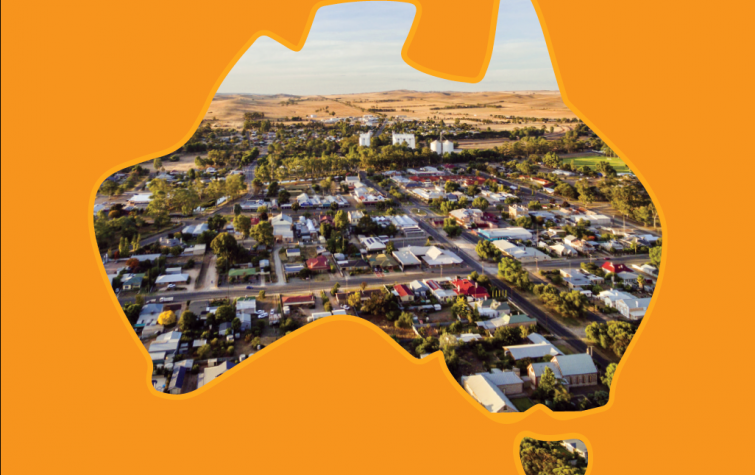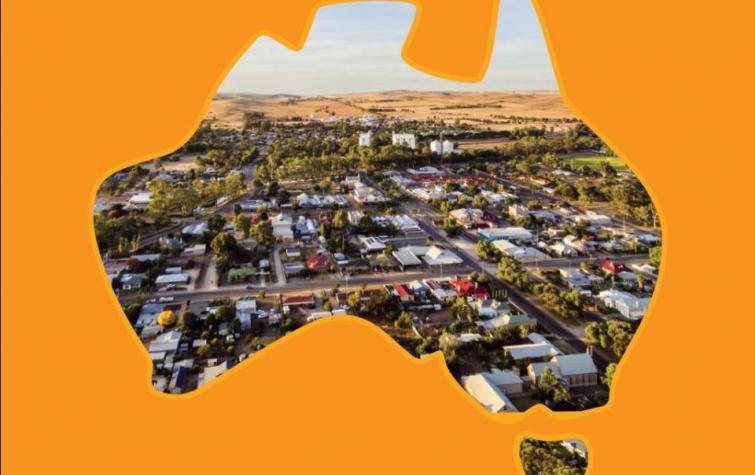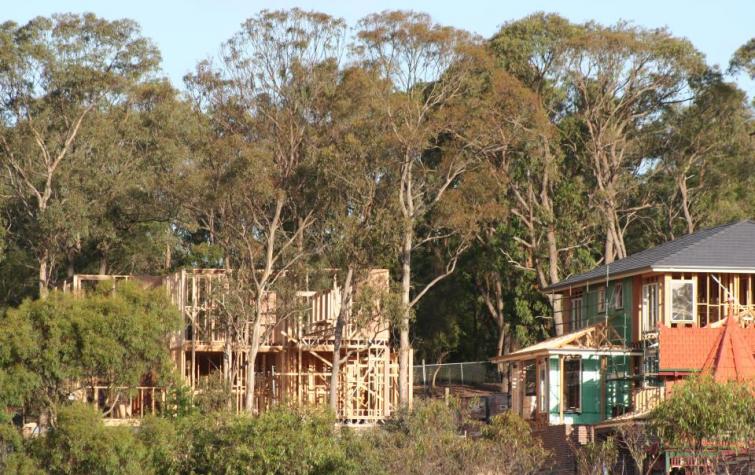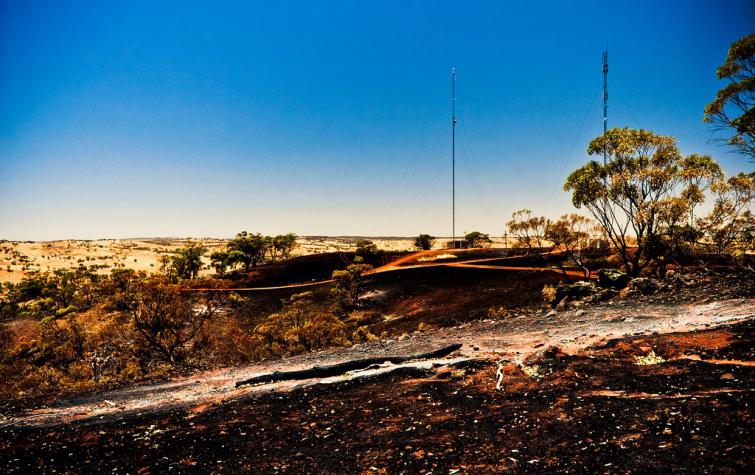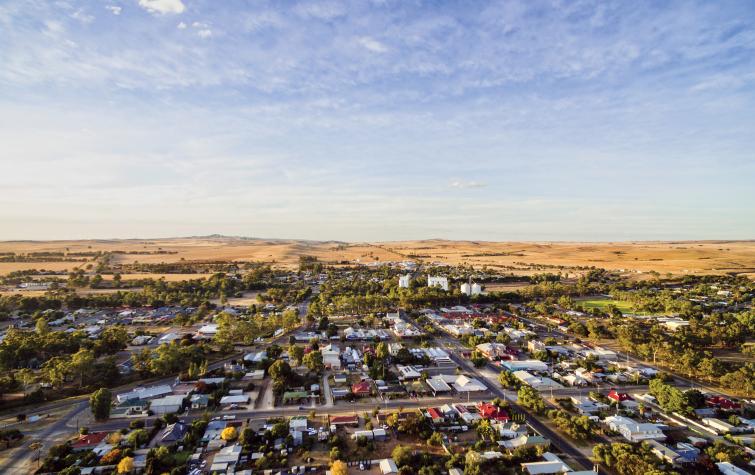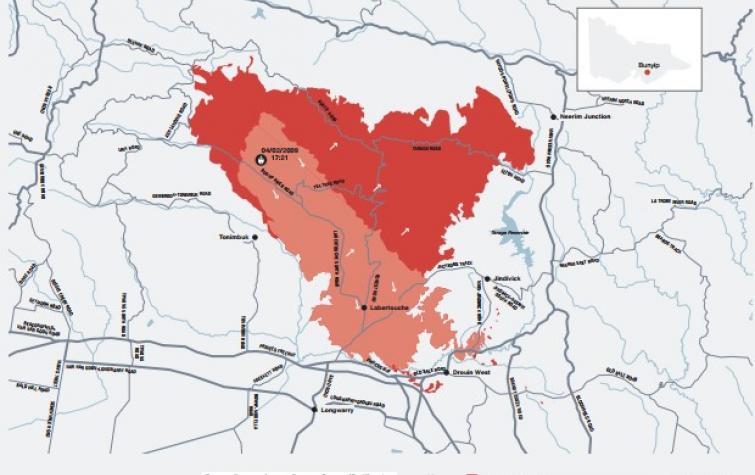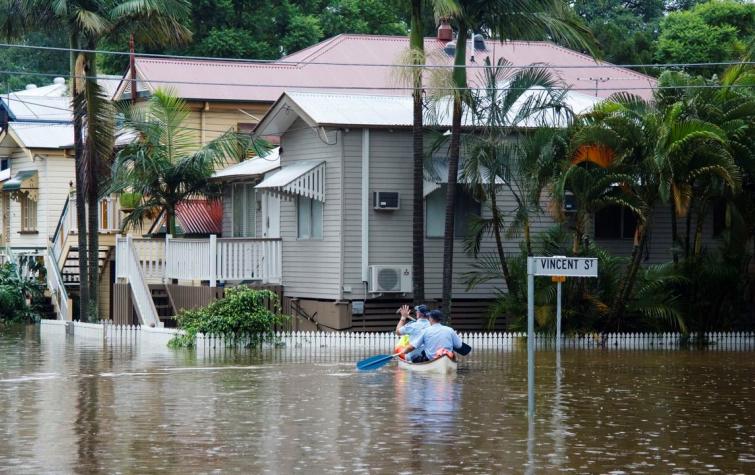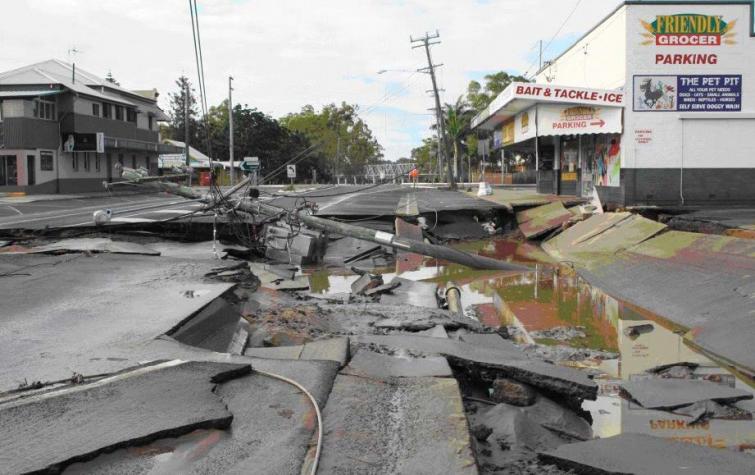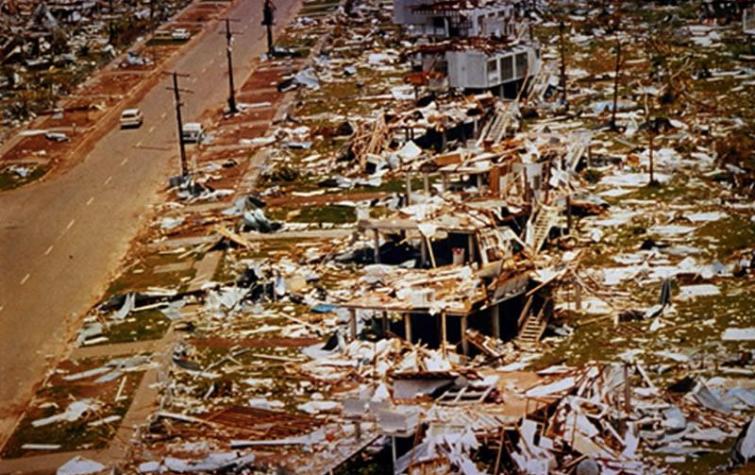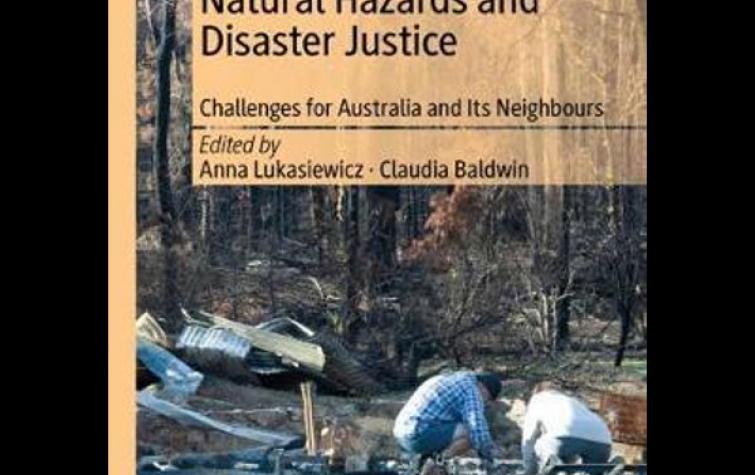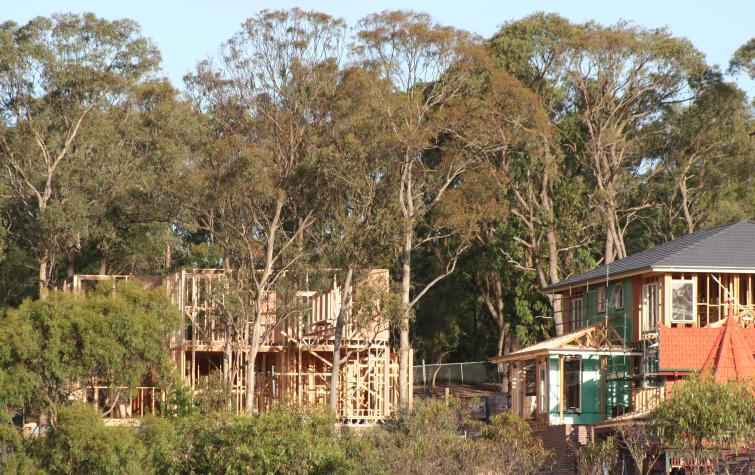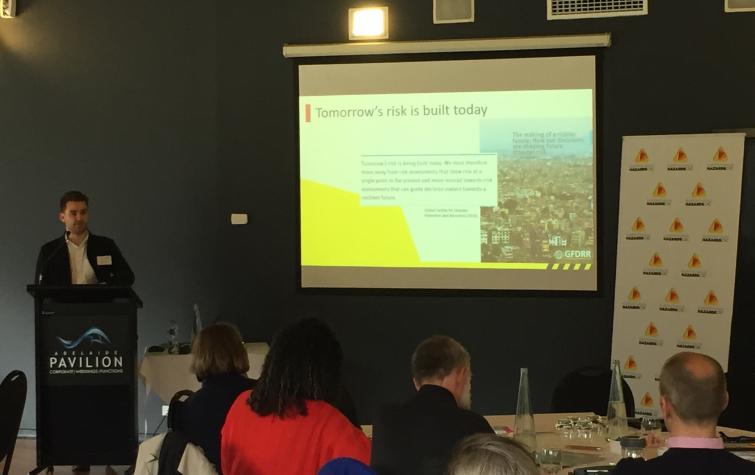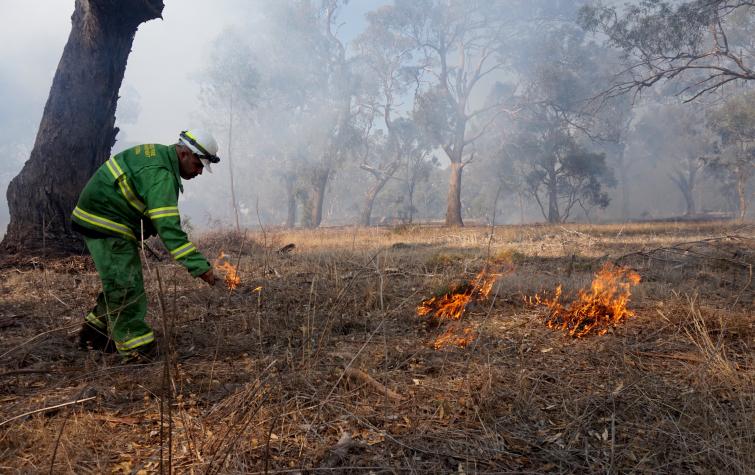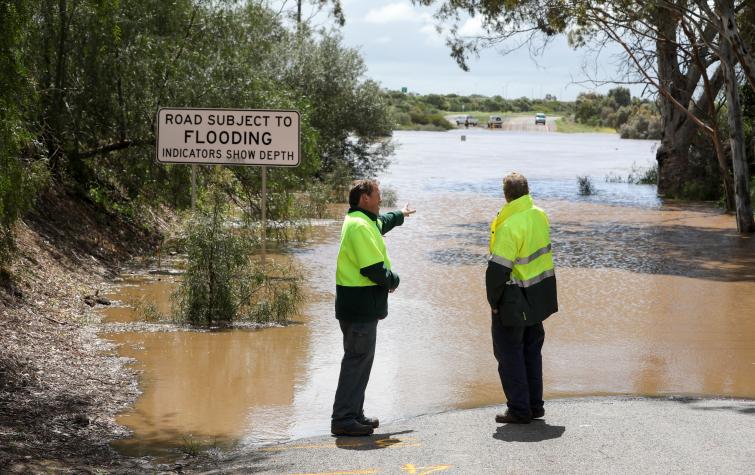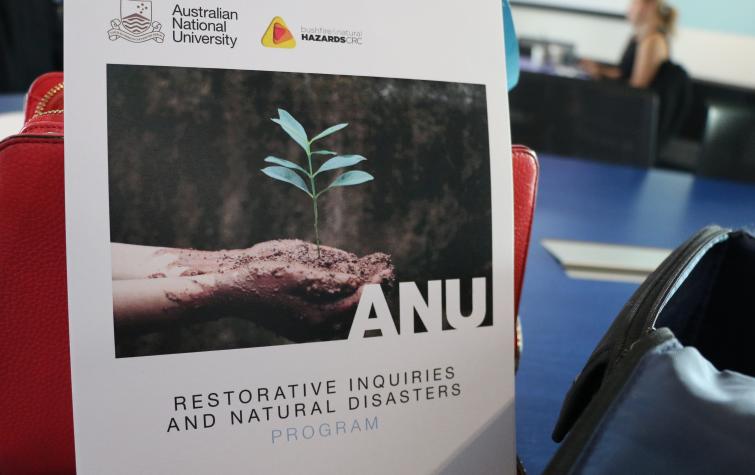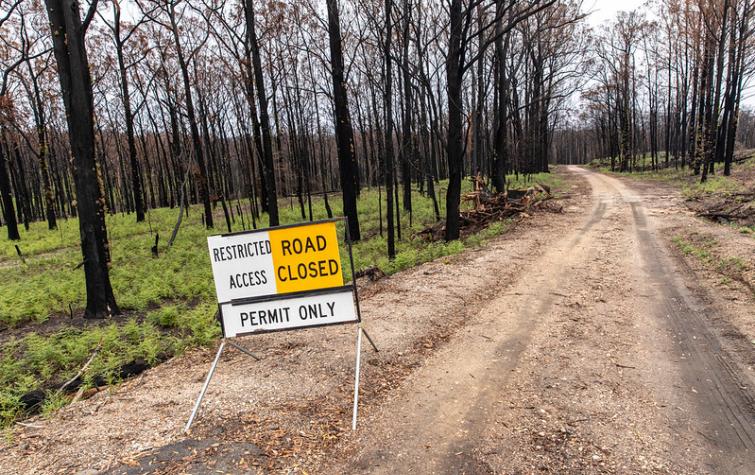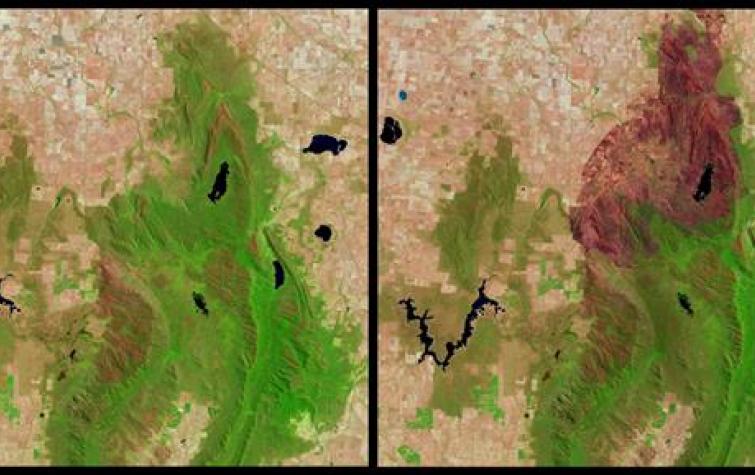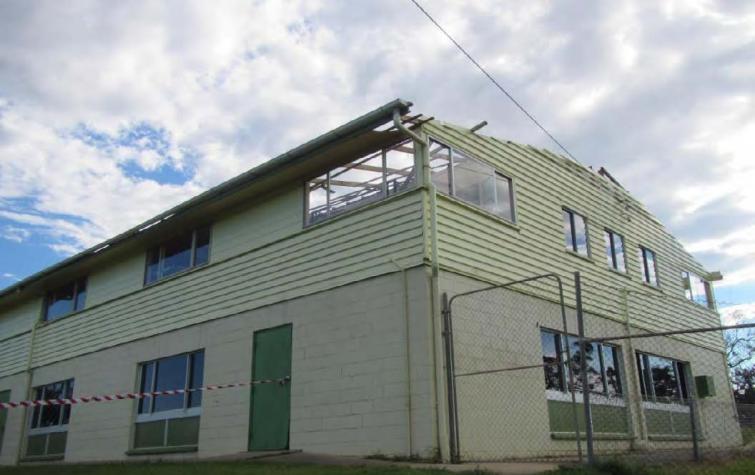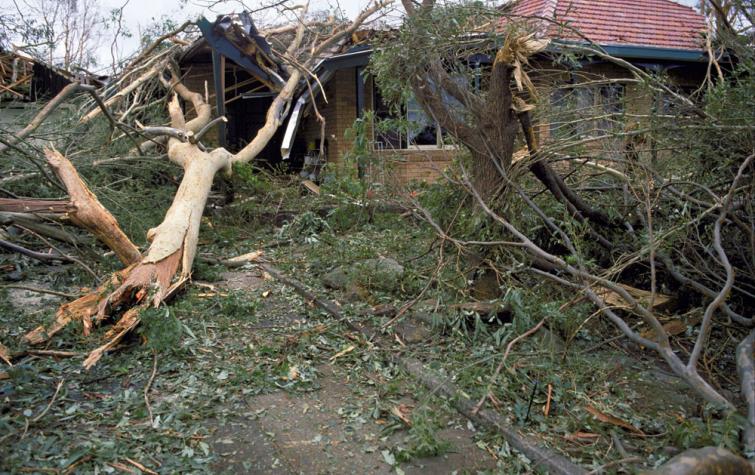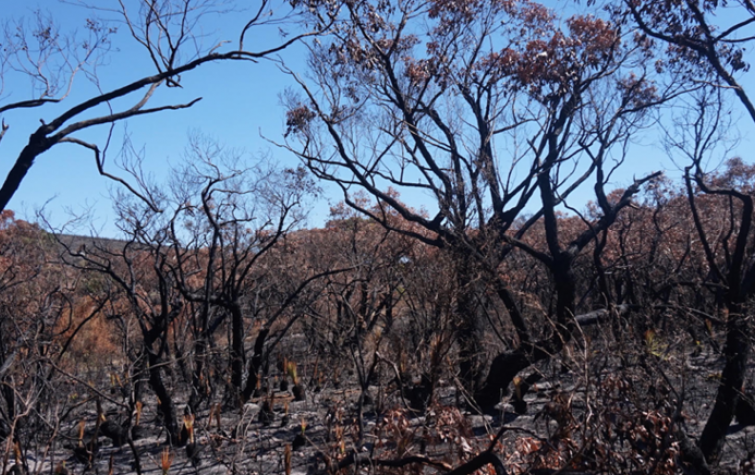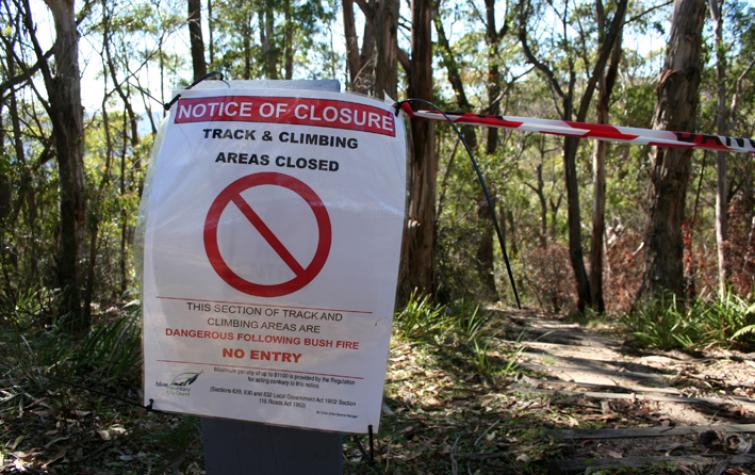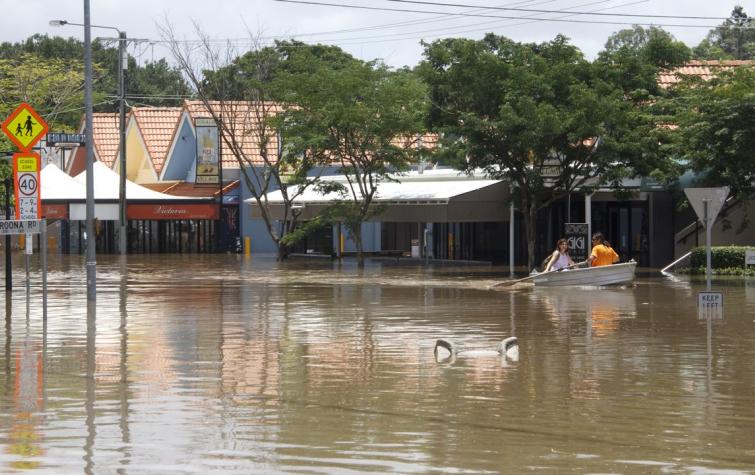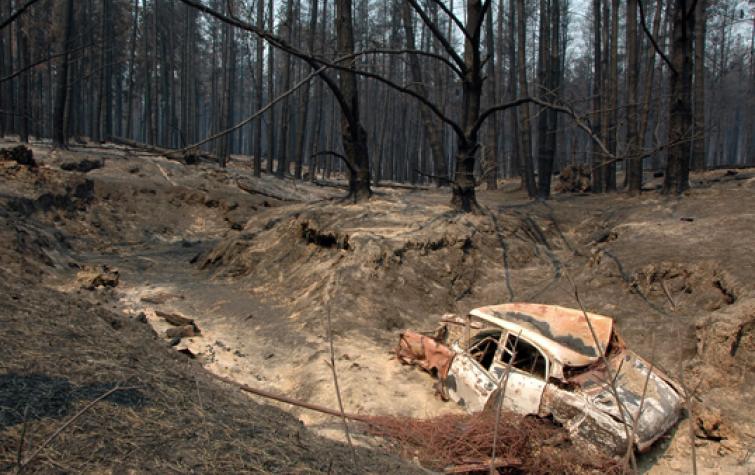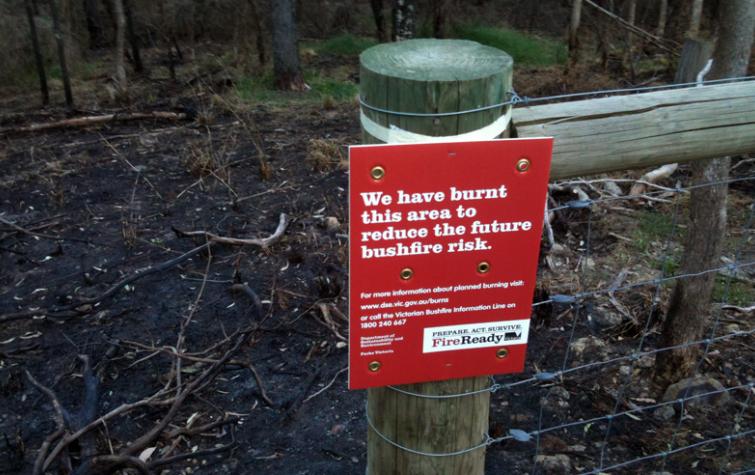
Research that makes policy recommendations or provides data for decision makers is one voice in the cacophony of noise and information that has an actual influence on policy.
While some Bushfire and Natural Hazards CRC research has produced tangible useable items where impact and uptake are more straightforward, research utilisation in this theme of Policy, Political Engagement and Influence can be less tangible and, therefore, difficult to measure for success.
Many researchers and emergency managers may agree on priorities and outputs of research, but the decision to use this research is made by governments, ministers or appointed commissioners who create policy.
Policy affecting emergency management is made across a broad range of portfolios, from planning and land use, to building standards, infrastructure, transport, communications, justice and more. Research findings, although important, are only one consideration.
To support decision makers, this research theme has produced an index on national disaster resilience, a database of historical inquiries, modelling software for urban and infrastructure planners, a tool to assess capabilities during extreme disasters, public information guides, disaster scenario planning, a framework to understand risk ownership in the community, and legal and policy options for governments at all levels.
Online tools
These online tools were developed with CRC research and are designed to be ready for use. The tools here have been curated for this Driving Change theme. See more tools in the other themes.
AUSTRALIAN DISASTER RESILIENCE INDEX
The Australian Disaster Resilience Index is a support tool developed by the Bushfire and Natural Hazards CRC in partnership with the University of New England. The website was developed specifically to help communities, government and emergency services take informed and practical steps to improve the disaster resilience of their local communities before, during and after natural hazards.
The Index is an industry-first assessment of the state of disaster resilience across Australia, and provides a clear pathway to improve decision making about planning, development, policy, engagement and risk assessment.
The Index measures overall disaster resilience, as well as coping capacity and adaptive capacity, of each statistical area (SA2) in Australia. It also proposes five disaster resilience profiles in Australia – nationwide collections of communities that share similar resilience strengths and constraints. This provides users with an opportunity to address the resilience of a specific area, form alliances with organisations in similar areas, and develop targeted improvements for their communities.
CAPABILITY MATURITY ASSESSMENT TOOL
Research has found a lack of knowledge in emergency management regarding collective capability requirements and the ability to manage severe-to-catastrophic disasters.
The Capability Maturity Assessment Tool can be used by state and territory emergency management agencies, and at a national level, to assess the current maturity of capabilities within organisations. It uses a series of criteria that align with the National Disaster Preparedness Framework, and provides an overview of how to strengthen coordinated preparedness for severe-to-catastrophic disasters, especially when facing numerous concurrent or sequential disasters that result in resource conflicts.
The tool is easy to use, can be tailored to specific needs and can be used on a longitudinal basis to assist organisations with measuring and reporting on their preparedness.
A Capability Maturity Assessment Facilitator’s Guide has been developed to support the implementation of the tool.
DIVERSITY AND INCLUSION FRAMEWORK FOR EMERGENCY MANAGEMENT POLICY AND PRACTICE
The Diversity and Inclusion Framework was designed in response to needs identified in collaboration with practitioners across the emergency management sector, including the need for greater understanding of the implementation process and role of inclusion, identification of structures and practices to support that implementation, and possible mechanisms that address a lack of diversity and inclusion.
You can also download support documents that will help you apply the contents of the Framework:
- Learning as we go: developing effective inclusive management presents case studies and examples of best practice and knowledge, to show that organisations are learning and building as they go and that some of the best resources that emergency management services have are their practitioners. It also provides resource materials that have been developed to support diversity and inclusion practitioners. Download it here.
- Young people and the emergency services: working towards inclusive partnerships provides an overview of what is important to young people, their areas of interest and their motivations to engage in their community. It provides strategies (including links to existing resources and checklists) of how to find ways to work with young people, and the skills, attributes and capabilities that young people bring to an organisation. Download it here.
- Building inclusive partnerships with culturally and linguistically diverse (CALD) communities provides basic guidance for emergency services practitioners to support the building of respectful and inclusive partnerships with culturally and linguistically diverse (CALD) communities. It focuses on general guidance that applies when working with all CALD communities, however each community will have its own context and character, so it's important to be mindful of the need to adapt practices to work with each community's specific needs. Download it here.
INQUIRIES AND REVIEWS DATABASE
Search through 315 emergency management inquiries and reviews from across Australia between 1886 and 2020.
The data can be sorted via disaster and inquiry type, date and jurisdiction using a simple table display. For more in-depth analysis, CSV files can be downloaded allowing you to run local queries and reports. The database also contains the full recommendations from 186 inquiries and reviews between 2003 and 2020. A facetted exploration interface enables a filter-search of 4,194 recommendations, allowing effective search and comparison through keywords and themes.
This database can be used for a variety of purposes including:
- To compare equivalent recommendations between inquiries, themes and jurisdictions
- To track inquiries across jurisdiction, year and types
- To download and work with all inquiries and listed recommendations for the particular needs of your organisation
RISK OWNERSHIP FRAMEWORK FOR EMERGENCY MANAGEMENT POLICY AND PRACTICE
Assessing risk ownership for managing natural hazards is complex because natural hazard risks can resonate across long timeframes and have multiple organisations responsible.
The Risk Ownership Framework for Emergency Management Policy and Practice was developed to support better allocation of risk ownership as part of strategic planning and risk assessment activities on an institutional scale. Applicable to all communities and all hazards, the Framework uses a values-based approach as a starting point for understanding and assessing emergency risks, clarifying risk ownership, evaluating benefits and decisions, enhancing risk management and monitoring activities, and informing disaster risk policy.
Case studies
CRC research is driving change across communities, government and emergency service agencies, as highlighted by the case studies relevant to each Driving Change theme.
Highlights
This collection is a curation of the best and most recent news articles, Hazard Notes, videos, posters, guides, journal articles and reports relevant to this theme.
News
Resources
Publications
Projects
This selection of user-driven projects allows you to explore the detail of the research. These projects, spanning the eight years of the CRC, are especially relevant to this theme, but may appear within other themes as well.

